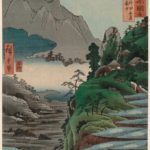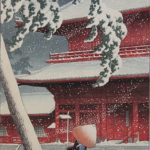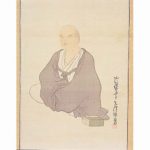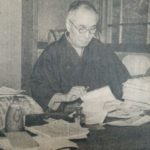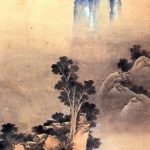Table of Contents
Japanese 5-7-5 autumn haiku to English three line
I show you the wonderful autumn haiku poems made by Japanese famous haiku poet.
Sponsored Links
Kobayashi Issa(1763-1828)
<Japanese>
牛の子が 旅に立つなり 秋の雨
Ushi no ko ga/ Tabi ni tatsu nari/ Aki no ame
<English>
The baby cow
Goes on a trip.
In the autumn rain.
<Japanese>
長月の 空色袷 きたりけり
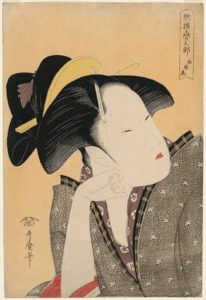
Nagatsuki no/ Sora-iro awase/ Kitari keri
<English>
In September
The sky wears
A lined kimono.
*The sky also prepared for the cold weather.
Yosa Buson(1716-1784)
<Japanese>
線香や ますほのすすき 二三本
Senko ya/ Masuho no susuki/ Ni-san bon
<English>
The incense sticks.
The reddish soil color pampas grasses
A few of peices.
<Japanese>
秋たつや 素湯香しき 施薬院
Aki tatsu ya/ Sayu koubashiki/ Seyaku-in
<English>
Autumn has come.
The plain hot water is fragrant.
The Seyaku-in.
*Seyaku-in:The Pharmacy Institution in ancient Japan.
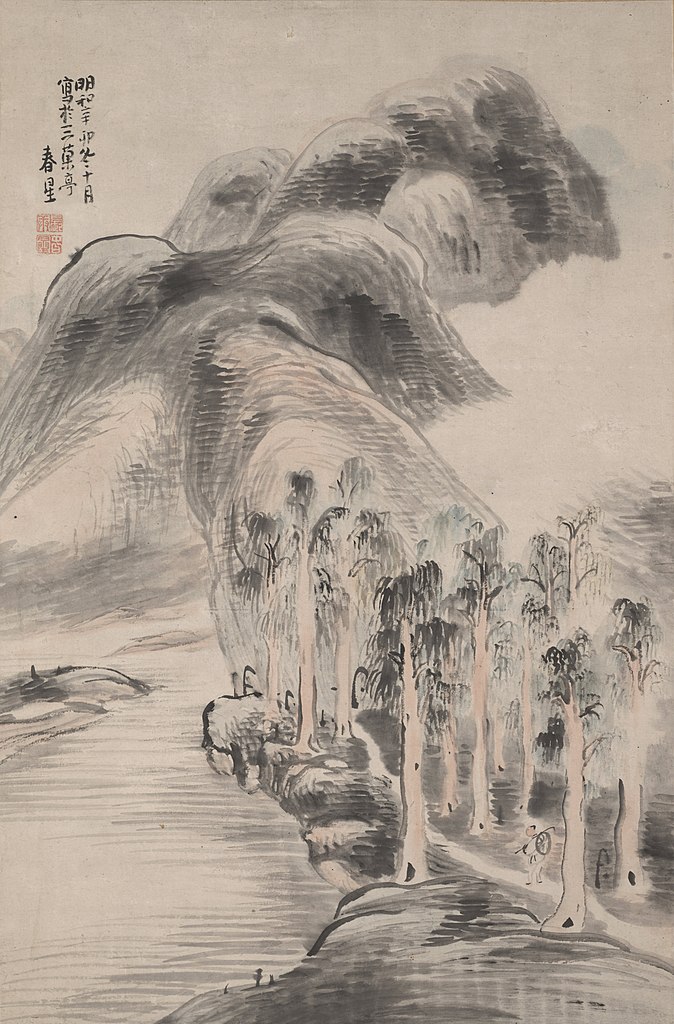
Masaoka Shiki(1867-1902)
<Japanese>
柿くへば 鐘が鳴るなり 法隆寺
Kaki kueba/ Kane ga naru nari/ Horyuji
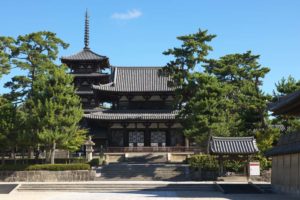
<English>
When I ate a persimmon,
The bell rung.
The Horyuji temple.
<Japanese>
白萩の しきりに露を こぼしけり
Shirahagi no/ Shikirini tsuyu wo/ Koboshi keri
<English>
The white bush clovers
Drop the dewdrops
Frequently.
<Japanese>
松山や 秋より高し 天守閣
Matsuyama ya/ Aki yori takashi/ Tenshukaku
<English>
Oh, Matsuyama.
Higher than autumn,
The castle tower is.
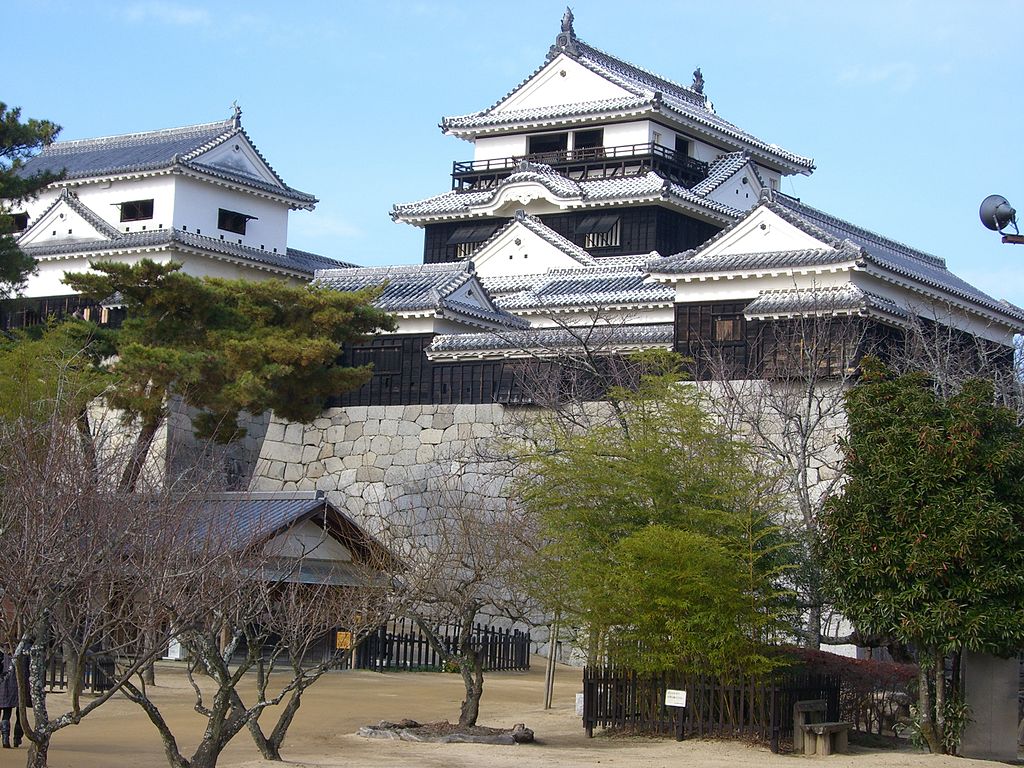
*Matsuyama:Matsuyama city, Ehime Province. Matsuyama Castle is famous sightseeing spot.
Kawahigashi Hekigoto(1873-1937)
<Japanese>
浅茅生や 小路の中に 女郎花
Asazio ya/ Koji no naka ni/ Ominaeshi
<English>
The ground with cogon grass.
In the alley,
The golden lace.
<Japanese>
鹿啼いて 麓は奈良の ともし哉
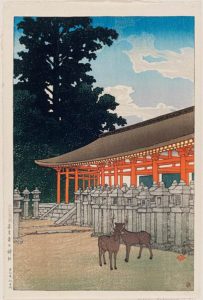
Shika naite/ Fumoto ha Nara no/ Tomoshi kana
<English>
A deer cry.
Nara at the base
Has the lights.
<Japanese>
渡り鳥 安積颪に しばしばす
Watari-dori/ Asaka oroshi ni/ Sibashiba su
<English>
The migratory birds
Make the wind blowing down to Asaka
From mountains frequently.
*Asaka: Asaka cho, Koriyama-shi, Fukushima Province.
Yamaguchi Seison(1892-1988)
<Japanese>
芒振り 新宿駅で 別れけり
Susuki furi/ Shinjuku-eki de/ Wakare keri
<English>
Waving the pampass grass,
At the Shinjuku station,
I said goodbye.
<Japanese>
曼珠沙華 そろひ傾く 水の上
Manjushage/ Soroi katamuku/ MIzu no ue
<English>
The cluster amaryllis
Lean all together
Over the water.
Nakamura Teijo(1900-1988)
<Japanese>
秋の暮 並びしバスの ひとつ出る
Aki no kure/ Narabishi basu no/ Hitotsu deru
<English>
The autumn evening.
The buses are in line,
And one goes out.
<Japanese>
傘さして 母やおくれて 秋の雨
Kasa sashite/ Haha ya okurete/ Aki no ame
<English>
Holding the umbrella,
The mother is behind.
The autumn rain.
<Japanese>
秋草の すぐ萎るるを もてあそび
Aki-kusa no/ Sugu shioruru wo/ Moteasobi
<English>
The autumn grass
Wilts at once.
Playing with it.
Sponsored Links
See also
Haiku poems of autumn. The examples by Matsuo Basho
Back to the page of “Haiku poem’s definition, examples and format


